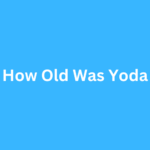Star Wars: The Last Jedi — A Riveting, Unorthodox Triumph – “Every saga has a beginning.” This phrase became synonymous with George Lucas’ return to his Star Wars universe, and it’s something he emphasized while discussing the narrative symmetry of the prequels with the original trilogy. He likened the continuity to poetry, citing the rhyming stanzas of echoes and reflections throughout the saga. The prequels, despite their divisiveness, carried the weight of Anakin Skywalker’s descent into Darth Vader, linking to the originals in thematic harmony.
Star Wars: The Last Jedi — A Riveting, Unorthodox Triumph
However, with the sequel trilogy initiated by “The Force Awakens,” this poetic resonance faced skepticism. Fans questioned if the new entries would merely rehash the classics or carve their unique essence into the Star Wars lore. “The Force Awakens” indeed mirrored its ancestors, much to the chagrin of some, but also to the adoration of others. It rekindled the extinguishing flame of fandom, uniting enthusiasts of every generation and successfully setting the stage for what would follow.
Yet, it was “The Last Jedi” that took the boldest leap. Rian Johnson’s vision didn’t just tread new paths; it was an audacious deconstruction and heartfelt reconstruction of what Star Wars could be, shaking the foundations upon which the empire stood.
As the credits ascended, viewers found themselves in a whirlwind of emotions, grappling with the unexpected. “The Last Jedi” isn’t merely a film; it’s an experience that leaves you bewildered and introspective, akin to life’s pivotal moments that catch us off-guard.
Johnson’s narrative bravado is most evident in his approach to humor. Yes, “The Last Jedi” is, unexpectedly, the funniest Star Wars entry. But it’s no space comedy. The humor is character-driven, situational, and, most importantly, humanizing. It breaks the characters from their mythic pedestals, making them relatable, flawed beings, save for one controversial scene with Luke that arguably detracts more than it adds.
More profoundly, “The Last Jedi” is a nuanced character study. Unlike its predecessors, which majored in high-stakes, epic storytelling, this chapter zooms in on the intimate journeys of its characters. It’s a refreshing shift, offering patient, sometimes unnervingly quiet reflections on identity, purpose, and legacy.
The film’s extended runtime is felt, particularly in the second act. Yet, this isn’t due to poor pacing; it’s a deliberate deceleration forcing audiences to inhabit the characters’ emotional landscapes. Some of Johnson’s creative choices are divisive, yet they underline an essential narrative truth: Star Wars, at its core, is about the human (or alien) experience.
This human-centric narrative is exemplified in Poe Dameron’s arc. Once a straightforward hero-type, Poe is now a layered character grappling with complex decisions that challenge his ego and loyalties. Similarly, Finn’s journey with Rose Tico is more than a side quest; it’s a poignant commentary on social hierarchies and the true cost of war, presented through the lens of the most ordinary heroes.
Rey’s story takes a compelling turn here. Her quick mastery of the Force in “The Force Awakens,” criticized by some as unearned, gains profound narrative depth. She’s a mirror of raw, untamed potential, seeking her place in this cosmic drama. Her interactions with Luke Skywalker, and the revelations about her lineage, are nothing short of narrative masterstrokes that defy expectations.
Kylo Ren, perhaps one of the most complex characters in the saga, shines as a conflicted soul torn between light and dark. His struggle is a vivid, internal battleground that reflects the series’ enduring theme: the perpetual fight between good and evil within us all.
“The Last Jedi” excels in subverting expectations. It’s a film that dares to challenge fan theories, established norms, and the very mythology of Star Wars itself. It’s a testament to the power of storytelling that isn’t afraid to take risks and redefine legacy.
In its action sequences, the film doesn’t disappoint. The lightsaber duels, less about choreographed finesse and more about raw emotion, tell stories of their own. They pulse with desperation, anger, and existential quest, marking some of the most emotionally intense moments of the franchise.
Furthermore, “The Last Jedi” stands as a cultural milestone. Its bold representation of diversity and gender is a silent yet potent commentary on contemporary issues, making it relevant beyond its narrative scope.
But at its heart, “The Last Jedi” is a meditation on legends, heroes, and the stories we tell. It’s about passing the torch, learning from failure, and rising anew. It’s about finding hope in the bleakest of times, a message as resonant today as it will be in generations to come.
Rian Johnson’s “The Last Jedi” is more than a successful chapter in the Star Wars saga; it’s a revolutionary redefinition of what a space opera can be. It’s a brave, unapologetic ode to the old, a thrilling introduction to the new, and a promise of greater tales yet to be told. With its character-driven narrative, thematic richness, and emotional depth, “The Last Jedi” is not just a film; it’s a testament to the enduring power of stories to inspire, challenge, and transform.

I’m a student. I like writing about famous people. I will cover biography of all the latest and trending people world wide. Stay tuned with me on Biographyly.com. Don’t forget to share our contents with your friends.




